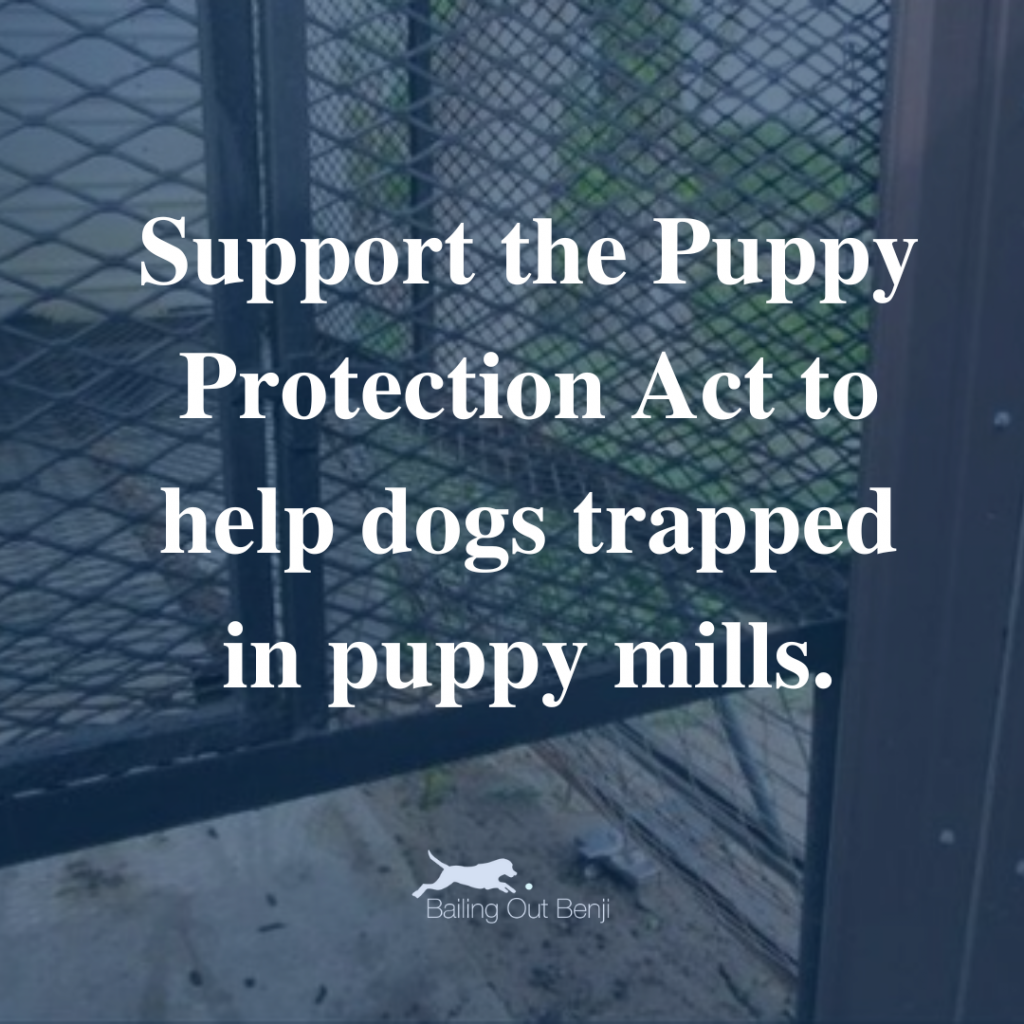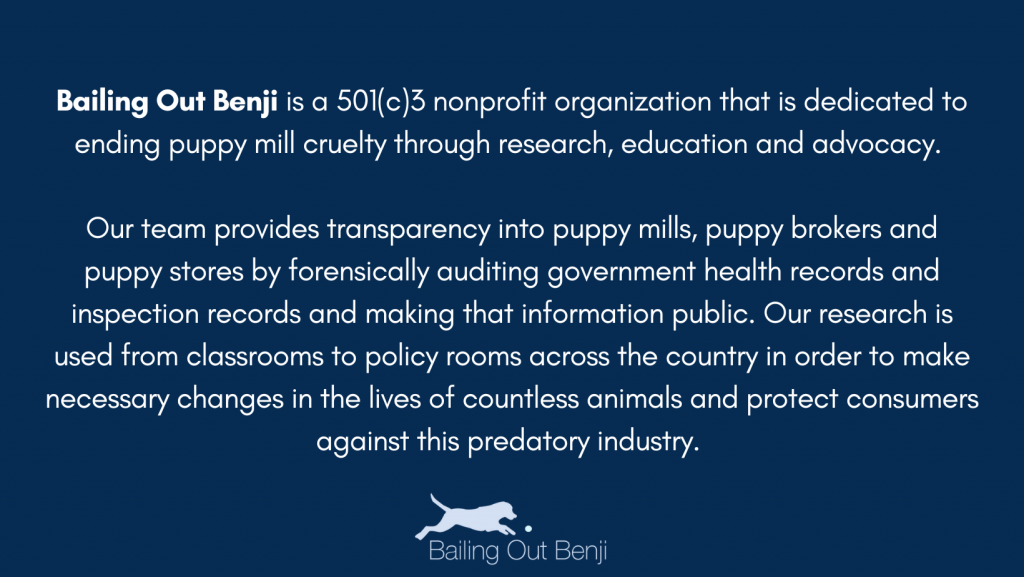
Angela Weaver (73-A-2819) from Howe, Oklahoma had her second pre-license inspection with the USDA on July 22, 2021. At the time she had 34 adult breeding dogs and 38 puppies.
Then she missed her USDA inspection on December 16, 2022.
Then proceeded to miss all 5 of the attempted USDA inspections she had in 2023.
More than two and a half years after her initial licensing, the USDA was finally granted access to the Howe property, but it wasn’t a quick process. The inspection occurred only after Weaver received an administrative complaint from the USDA in December 2023 and then in January 2024 the USDA took to the United States District Court of Eastern District of Oklahoma in order to seek “preliminary injunctive relief, requesting that the Court order (the) Defendant to: allow APHIS officials to conduct an unannounced inspection of the breeding facility during business hours”.
This is a USDA licensee refusing to allow the USDA to check on the status of the breeding program she operates while under USDA oversight.
Once the USDA was granted access, however, it was clear that there were issues on the property that had accrued during the time that inspectors could not gain access to her facility.
When the USDA was able to inspect her property after two and a half years, Angela Weaver received 18 non-critical violations and 3 direct violations over the span of 8 days.
The USDA inspector found that, while Weaver was only licensed to have less than 50 animals on her property, she had 67 adult dogs and 24 puppies. Weaver also had violations that included:
- 13 dogs with matted coats
- 21 dogs without any official form of identification
- Missing information missing from official forms
- Housing areas that have holes in the ground and rusted metal wires
- A drainage system that wasn’t working properly, resulting in the accumulation of waste near the building
- Puppies being housed without wind or rain protection
- Feet passing through flooring
- Excessive feces issues and evidence of rodents
- Inadequate staffing
- Veterinary care
- Feeding
- Attending veterinarian (direct)
- Primary enclosures (direct)
- Incompatible dog groupings (direct)
At this time, Weaver still has an active USDA license and no additional USDA inspections have been posted besides the ones referenced above.
It is clear that animal suffering could have been alleviated much earlier, had the USDA taken action sooner. While Weaver is just one example of what can happen when there is no oversight on a breeding facility, the skipping of USDA inspections happens very frequently and the process to schedule an additional inspection can also take time.
Who’s missing who?
Missing inspections isn’t new for USDA licensees, nor is it uncommon. From January 1st, 2023 to February 29, 2024, we documented 291 instances of Class A and Class B licensees receiving the following violation:

When an inspection is missed, these are often handled as ‘non-critical’ violations. According to the USDA, after an attempted inspection the inspector should attempt to contact the licensee/registrant up to three times, preferably by phone, and within one week of the inspection. If the inspector has been unsuccessful in getting ahold of the licensee, the inspector should wait at least two weeks after sending an “Attempted Inspection” letter before attempting another inspection.
This gives the licensee at least two weeks (minimum) to come into compliance without the USDA documenting any violations they might have found had they had access to the facility. Not answering the door is an acceptable response to an inspector knocking.
If the facility has multiple missed inspections, the inspector can denote this as a Critical repeat violation.
But what happens when the licensee straight up won’t allow an inspector to come in?
There are many documented instances where a USDA licensee refuses to allow the inspector access to the property or behaves in an unsafe way where the inspection must end. The licensee receives a ‘critical’ violation for refusing to allow an inspection to occur or continue. The USDA, as seen in the image below, suggests that the inspector leaves the premises and calls the police.

At least 13 times between January 1st, 2023 to February 29, 2024, USDA licensees received a Critical Violation for refusing inspectors to have access to their property. In certain cases, licensees were argumentative and belligerent towards inspectors.
Below are a few examples of those inspections:
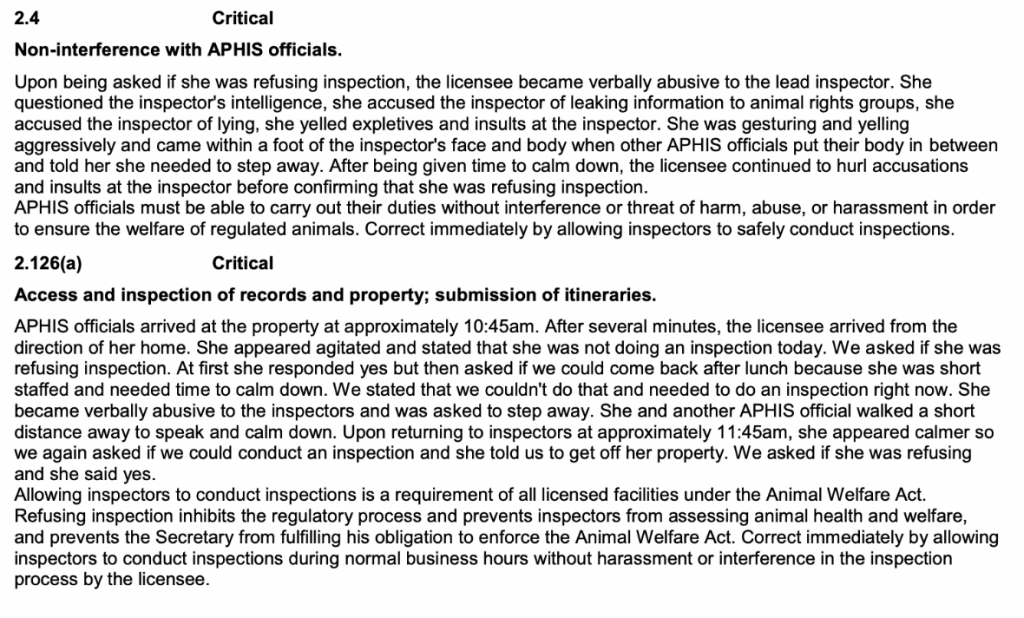
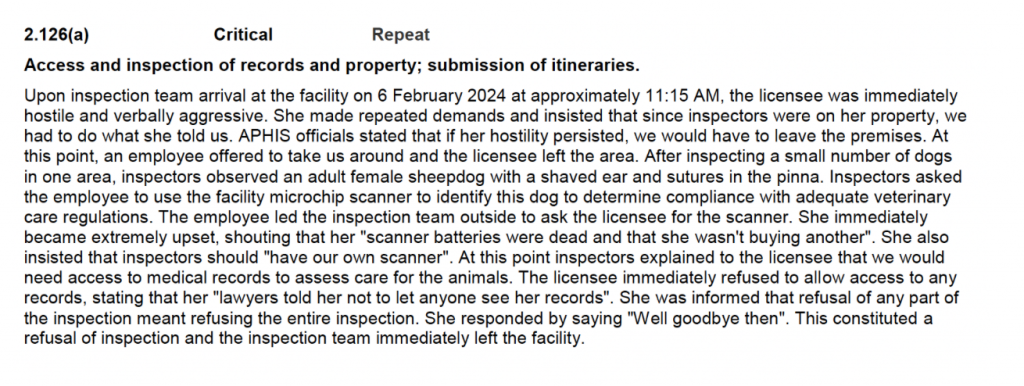
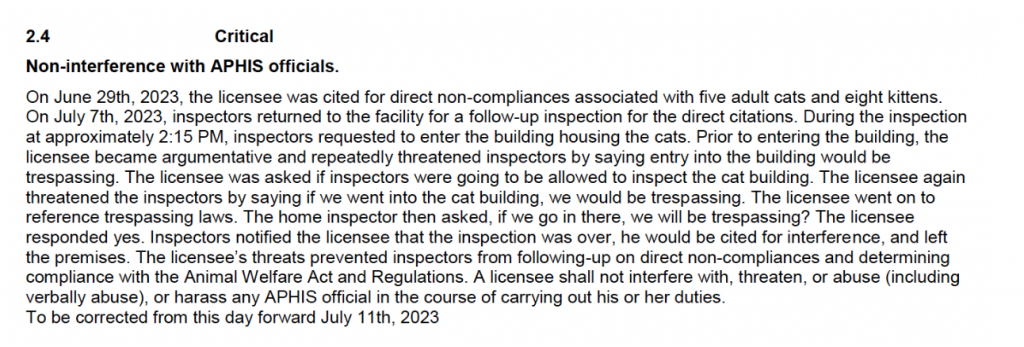
As you can see, it can be volatile and sometimes downright dangerous for the USDA inspectors to be overseeing these properties. They are walking onto someone’s property, sometimes inside of a person’s home, and they are expected to document AWA violations. Unfortunately, threats to an inspector do not result in an automatic revocation of a license.
The example below occurred in 2015. The breeder was allowed to remain USDA licensed until 2017 when he switched to an Iowa license. Another Iowa breeder threw a bag of dead puppies at an inspector and is USDA licensed to this day.

Authority and Compliance
In the end, each USDA licensee agrees to be regulated by the USDA in order to operate a breeding facility that conducts AWA regulated activity. This grants the USDA authority to inspect licensed facilities unannounced to ensure that they are compliant with AWA standards. Missed inspections and out right refusals of inspections go against the agreement that Breeders and Dealers made with the USDA to become licensed.
Furthermore, as seen with Angela Weaver, when the USDA does not press on missed inspections, there is room left for facility standards to slip and for animal welfare concerns to arise. Facilities also have the capability to hide the true conditions of their facility simply by not answering the door.

